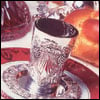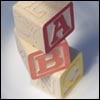2:1 Keli Rishon
A Keli Rishon is the first vessel, i.e., the vessel in which the food or liquid was heated on the fire.1 Even if the pot has been removed from the fire, it still retains its status as a Keli Rishon as long as it is Yad Soledes Bo.
2:2 Irui Keli Rishon
Hot liquid poured from a Keli Rishon is called Irui Keli Rishon. Since the liquid is being poured from a Keli Rishon, it still has some cooking power.
2:3 Keli Sheni
A Keli Sheni is the second vessel.2 If hot water was poured from a kettle into a cup, the kettle is a Keli Rishon and the cup is a Keli Sheni. Although the water in the cup may still be very hot, the transfer of water from one vessel to another decreases its cooking power.
2:4 Irui Keli Sheni
Liquid poured from a Keli Sheni is called Irui Keli Sheni.
2:5 Keli Shlishi
A Keli Shlishi is the third vessel. If water from a kettle is poured into a cup, and then the contents of that cup are poured into another cup, the second cup is called a Keli Shlishi.
2:6 General Groupings
For most practical applications, one can divide the above into three categories:
1. Keli Rishon and Irui Keli Rishon, which basically have the same halachic status;
2. Keli Sheni;
3. Irui Keli Sheni and Keli Shlishi, which basically have the same halachic status.
2:7 Kalei Bishul — Easily Cooked Foods
Some foods require an intense degree of cooking. These foods are called Keshei Bishul. Water is an example of Keshei Bishul. Most foods require a moderate amount of cooking. A few foods are considered Kalei Bishul, i.e., very easily cooked. Under this category are included eggs, salted herring, sardines and tea-leaves.
2:8 Davar Gush — A Hot Solid
A hot solid3 that has been removed from a Keli Rishon and placed into a Keli Sheni still remains very hot. This hot solid is called a Davar Gush. A question is raised in the Poskim as to the status of a Davar Gush: Since it retains its heat, is it to be considered as a Keli Rishon? This will be discussed in Section 3:5.
2:9 Bishul Achar Bishul — Cooking After Cooking
Liquids
There is a dispute among the Poskim as to whether a liquid that has been cooked and then cooled is subject to the laws of Bishul. Some Poskim say that if the liquid has cooled below Yad Soledes Bo, it is subject to Bishul, and others argue that once the liquid has been cooked, it is no longer subject to the laws of Bishul even if it is now cool. Somewhat of a compromise is reached in the final ruling.
In general we apply the principle of “Yesh Bishul Achar Bishul BeDavar Lach” — there is cooking after cooking in the case of a liquid. It would therefore be prohibited to reheat cold chicken soup. However if the liquid is still warm enough to be considered appreciably warm/hot,4 even though it is not Yad Soledes Bo, then the Poskim are lenient and Bishul does not apply.5 Therefore it would be permitted to reheat warm chicken soup even though it is not Yad Soledes Bo.
Solids
With cooked solids, we apply the rule, “Ein Bishul Achar Bishul BeDavar Yavesh — there is no cooking after cooking with a dry solid.6 Therefore a solid food that has been fully cooked but has since cooled may be reheated on Shabbos by placing it in a Keli Rishon that has been removed from the fire. It is however forbidden to place the solid in a Keli Rishon standing on the fire since to the onlooker this looks like an act of cooking.
Why the difference between solids and liquids? There are two elements to the cooking process:
1. Heating
2. Cooking
In the case of a liquid, the main function of Bishul is heating, and therefore Yesh Bishul Achar Bishul BeDavar Lach. Whereas with a solid, the main aspect of Bishul is the transformation of a solid from a raw, inedible food into an edible, cooked food. Once this has been achieved, reheating is not considered Bishul — Ein Bishul Achar Bishul BeDavar Yavesh.
2:10 Bishul Achar Afiyah — Cooking After Baking
Bishul/Cooking and Afiyah/Baking are two separate processes which are prohibited independently. Therefore, a cooked food is prohibited to be baked — Yesh Afiyah Achar Bishul and a baked food may not be cooked — Yesh Bishul Achar Afiyah.








Start a Discussion